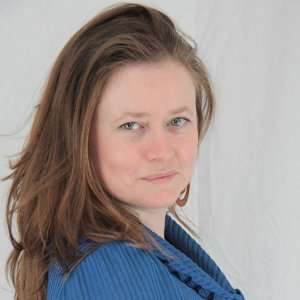In between the first two pieces, conductor Edward Gardner took a few moments to explain the decidedly un-Christmassy programming for 20th December by the BBC Symphony Orchestra. To end Wagner’s bicentenary celebrations, the orchestra built their programme around the Prelude to Act 1 of Tristan und Isolde, showing how Wagner had influenced musical history.
It was an intense programme, taking us to the summation of Austro-German Romanticism and tipping over into Modernism. It began with A Faust Overture, described by Gardner as the “genesis” of Tristan und Isolde. The BBC Symphony Orchestra dazzled from the opening, with a perfect unison from the double basses. They ushered in a sense of foreboding, with Gardner drawing out a lush, rich tone. The orchestra then alternated between bristling energy and searing lyricism in a performance that was simultaneously perfectly controlled and wildly emotional.
Christine Brewer was then welcomed to the stage for the Wesendonck Lieder (orch. Mottl). The poetry for these songs is by Mathilde Wesendonck, the wife of one of Wagner’s benefactors. The exact nature of their relationship remains a tantalising uncertainty, but she inspired Tristan und Isolde, hence the songs’ inclusion.
Alongside this infatuation ran the ideals of German philosopher Arthur Schopenhauer. Schopenhauer viewed life as a struggle against desire. Relief is only achieved by submitting to oblivion. While Schopenhauer aligned this with meditation, Wagner reinterpreted this as achievable through romantic union.
Brewer and the orchestra brought a beautiful warmth to Der Engel, powerfully invoking the descent of an angel and the elevation of the soul and heart. Stehe still began with great wildness before turning to calm eroticism, full of the promise of sexual oblivion. Im Treibhaus could have begun more sultrily, but eventually we were in the hothouse, with exquisite vocal colouring from Brewer. In Schmerzen we were offered a rich, red sunset, followed by a triumphant sunrise. Träume returned us to the beautiful warmth of the opening, gathering energy before fading away blissfully to nothing.
In Webern’s Passacaglia, I got a real sense of the orchestra’s aim to show development from Wagner through to the 20th century. Written in 1908 after four years of study with Schoenberg, Webern numbered it as his Opus 1. He uses an eight-note theme which goes through 23 variations, becoming more and more obscured throughout, stretching harmonic language to its breaking point.
The breaking point is exactly where the BBC SO went with their performance, with Gardner and the orchestra looking backwards and forwards from 1908 in their interpretation. So full was the performance that I thought we had reached the “drastic climax” described in their programme several times, only to find each time that the orchestra had yet more to give.
Being the centrepiece of the concert, and so well-known, it was perhaps inevitable that the Prelude to Act 1 of Tristan und Isolde would struggle to live up to the hype. In the Prelude, we return to the ideals of oblivion through sexual union, and of course meet the chord credited with changing musical history. Maybe this weighed heavily on the orchestra, which suffered a very rare attack of inertia. However, although it took a while for the orchestra to find their bearings, once they did they produced a lovely, full sound, which swelled to a rich climax.
Instead of the Liebestod, the end of the Prelude ran into the beginning of Berg’s Seven Early Songs. These are favourites of mine and I have always been keen to hear them live. For the most part, they were a success. Nacht was beautifully eerie, before opening into a shimmering wonderland, while in Schilflied the orchestra invoked sighing reeds, and Brewer sang dreamily. The performance tripped slightly in Die Nachtigall, as Brewer was not given enough time to breathe. However, things improved in Träumegekront, where Gardner brought out the Mahlerian undertones in Berg’s music. Im Zimmer was beautifully pastoral, but Liebesode was perhaps a little overwrought. Sommertage recalled the twinkling of night before this time opening into emotional fulfillment.
Strauss’s Death and Transfiguration is an extraordinary piece to have been written by a young man with all his life ahead of him. The musical storyline of a man approaching death is easy to follow, and the orchestra opened with rasping breaths on the violas as the woodwind invoked the approaching figure of Death. Strings soared with the anxiety of the inevitable, as timpani provided fading heartbeats. The orchestra moved from wistful, childlike recollection to abject terror, with the brass sounding death knells before the timpani heartbeats faded to nothing. After this the orchestra rose from the depths, transporting us to perhaps Heaven, or the blissful oblivion of Schopenhauer.
While amusing, the brass encores of Christmas repertoire did somewhat shatter the transcendental atmosphere. The concert is being broadcast on Radio 3 on January 27th; it is well worth hearing.


